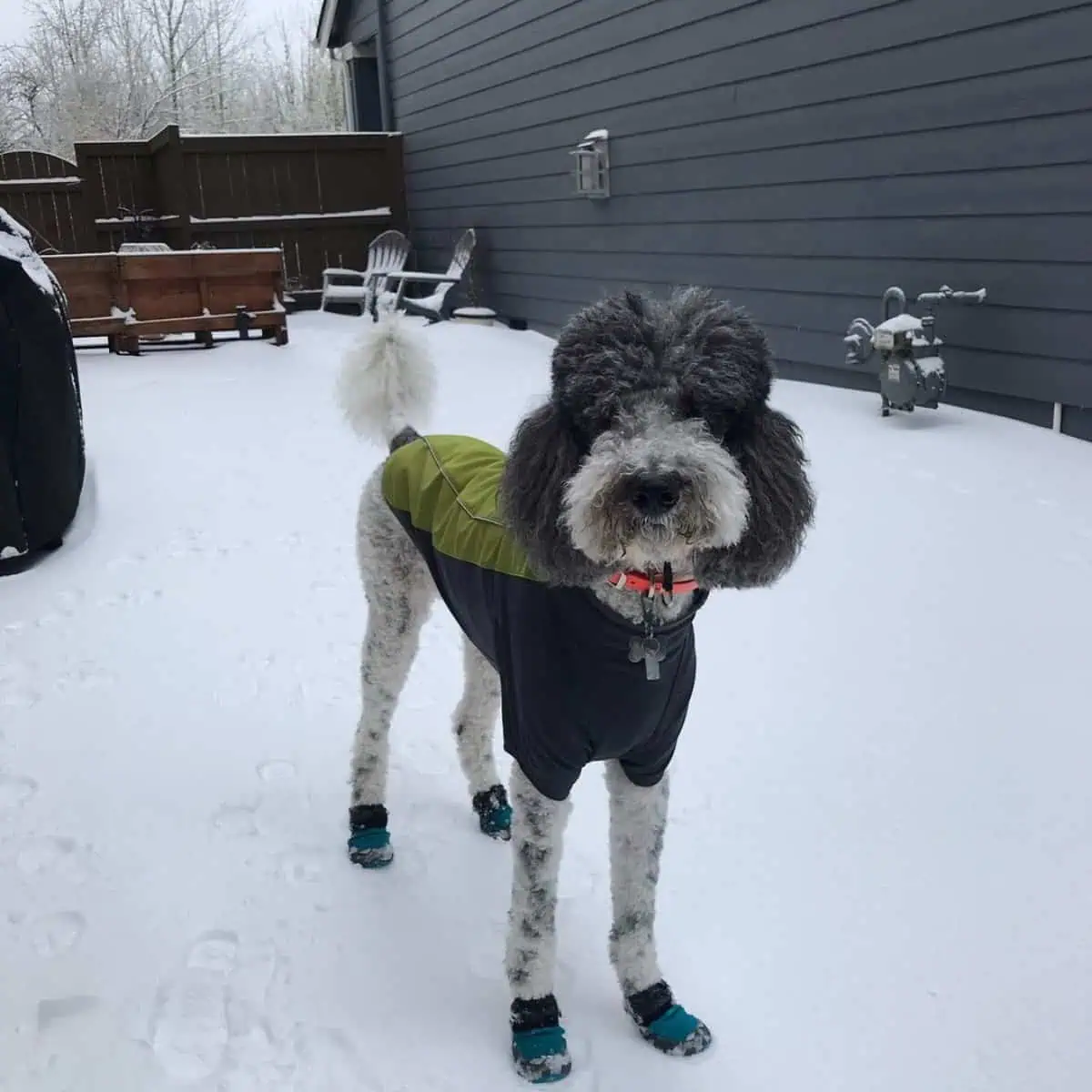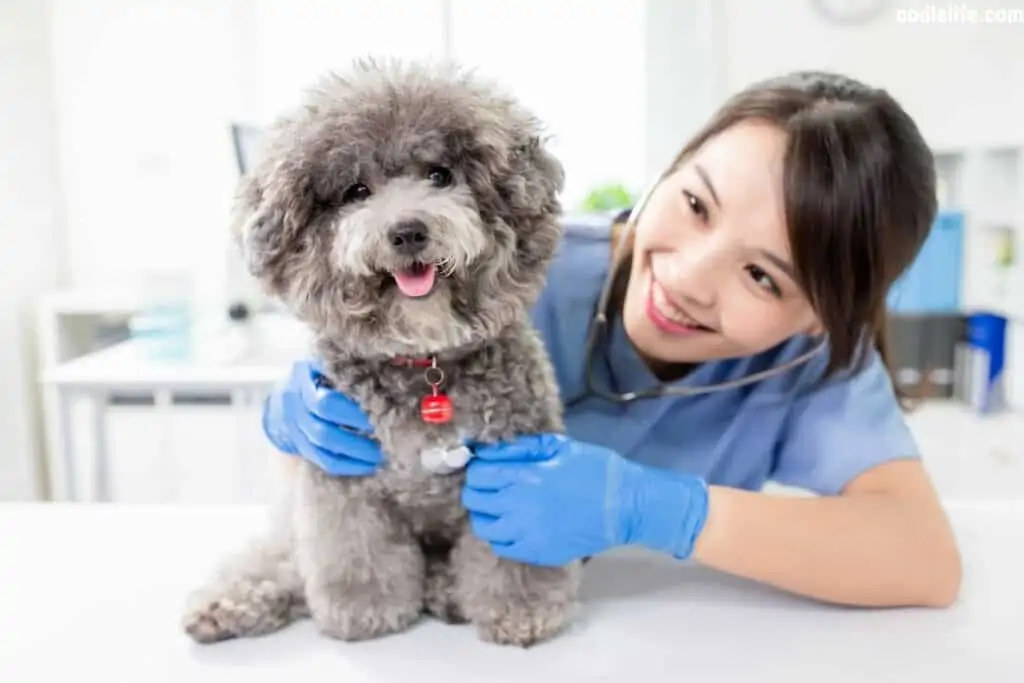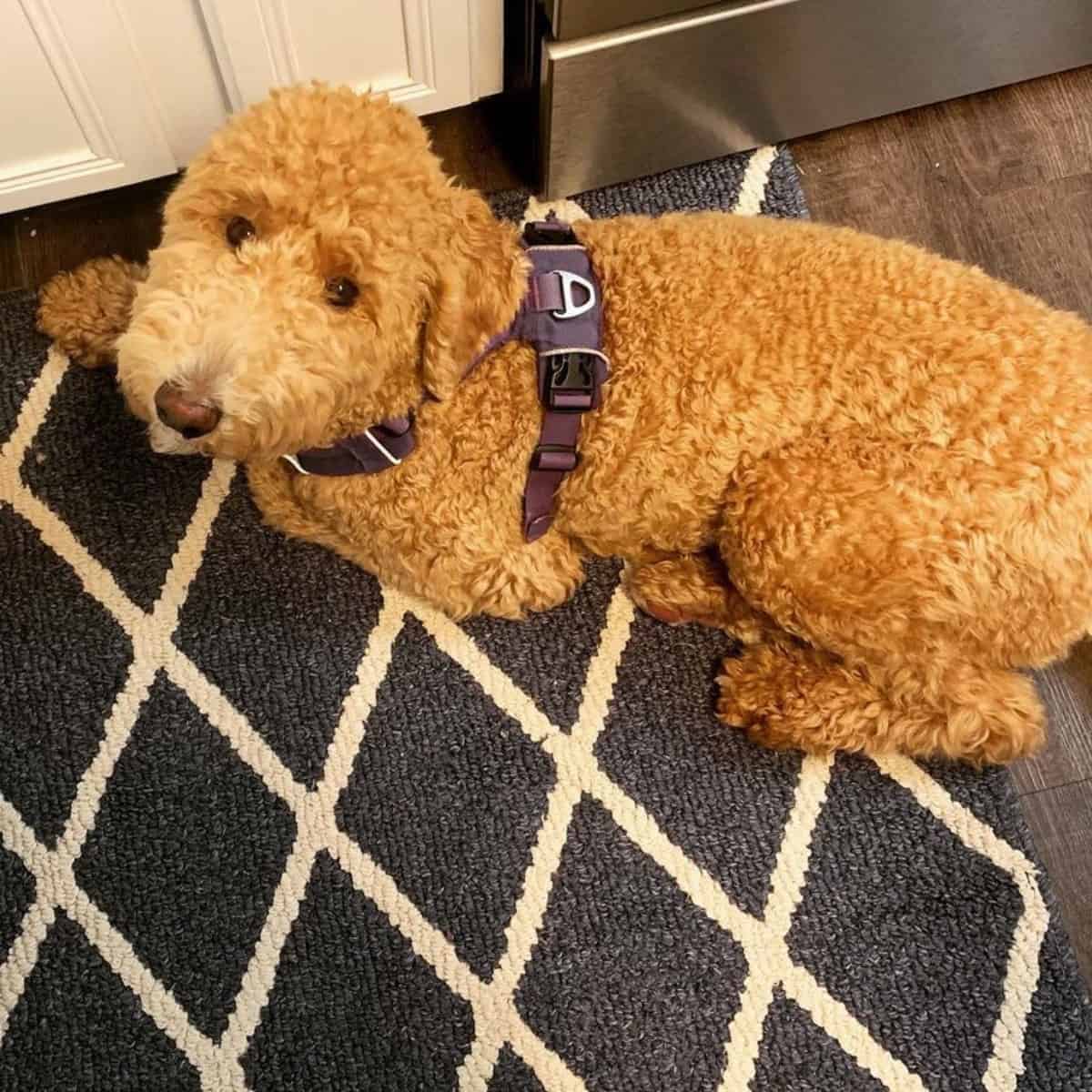Are Poodles Aggressive?
Whether you’re considering adopting a poodle or just bought a new puppy, it’s normal to wonder whether Poodles get aggressive.
Fortunately, Poodles aren’t typically aggressive, making them excellent pets for quiet households.

However, certain situations can cause your Poodle to act aggressively, and it’s critical to know how to respond when that happens.
Do Poodles Have an Aggressive Temperament?
No. Poodles are notoriously loving and loyal. While they can be playful and mischievous at times, poodles aren’t generally aggressive. Despite that, your Poodle may act out and perform aggressions when they get scared or fearful.

Do Poodles Make Good Pets?
Yes. Poodles are incredibly faithful, and they’re extremely cute. They are also easy to train. Poodles are intelligent, and they’ll understand commands and follow them. They aren’t large, and since they typically have a mild and playful temperament, they’re perfect for households with children.

Why Is My Poodle Aggressive?
If poodles aren’t aggressive, why might some poodles perform acts of aggression? Those include snarling, growling, baring their teeth, barking aggressively, nipping, and even biting.
Usually, your Poodle isn’t acting aggressively – they’re just fearful, hungry, or anxious. It’s easy to mistake such emotions for aggression. Here’s why your poodle is acting aggressive.
They Are Fearful or Anxious
Often, poodles will become fearful or anxious if they are in situations they are not used to. For example, if you just got a new poodle, they may have a tough time adjusting to your home. It takes time for poodles, like humans, to get comfortable in new environments.

Poodles may get fearful due to trauma. If your poodle got into a fight with another dog, and the other dog bit it, it may become fearful and assertive every time it sees another dog.
Poodles also develop attachments. If it gets separated from its owner for too long, it may experience anxiety. This type of anxiety is known as separation anxiety.
Your dog may perceive certain humans, dogs, cats, or situations as dangerous, even if they aren’t. Poodles are protective dogs, so they may also act aggressively if they perceive danger to their humans.
For example, it may notice that someone is at the front door and bark aggressively. Alternatively, your friend may stop by for a chat, and while they may be your lifelong buddy, they’re still a stranger to your poodle.
They Are Being Territorial
Many dogs are territorial to some extent, and poodles are no exception. If your poodle is not used to socializing and being around other dogs or animals, it may get territorial. To assert dominance, it might bark loudly or even growl.

They Are Hungry
Sometimes, your pup might be hungry. It might bark because it wants to eat. If it’s famished, it might even growl or snarl to get your attention. We humans get irritated when we are starving, and dogs are no different.

They Are Sick or in Pain
You may not have noticed it, but your dog might be sick or in pain. Poodles, like all dogs, are susceptible to various health problems. Specifically, common health issues that poodles experience include bloating and hip dysplasia.

Bloating isn’t typically serious, but it can cause tremendous pain to your pup. When your poodle is in pain, it might be in a bad mood and act aggressively.
While extremely rare, at least in the United States, unaccounted aggression may be a sign of rabies. Only around 60-70 dogs get rabies in the United States every year, according to the CDC.
Almost always, they did not receive their rabies vaccines and acquired rabies after a rabid fox, skunk, or other wild animal bit them. If your dog is vaccinated or hasn’t been in contact with wildlife, rabies isn’t something to worry about.
They Are Not Getting the Stimulation They Need
Poodles should get at least an hour of total exercise a day. If it doesn’t get out of the house, it may get anxious and act up.

Poodles are intelligent and active dogs, as I mentioned above. As such, they need daily stimulation. If you are busy and can’t play with them, give them some toys to keep them active.
The Previous Owner Mistreated It
If you adopted a poodle from a shelter, they might act aggressively when in contact with humans. That’s a normal reaction that dogs commonly experience after being abused. Even if you got the poodle from a private owner, it may act aggressively if the previous owner didn’t treat it well, such as by leaving it chained all day.

Don’t worry, though. Poodles are loving creatures. As soon as they get to know you and realize you’re not a threat, they’ll warm up to you.
What to Do if Your Poodle Acts Aggressively?
If your poodle acts aggressively, it’s crucial to first figure out what is causing it to act that way. Is it anxiety? Hunger? Is it asserting dominance? By looking at the situation, you can discover the triggers for the aggression.

For example, if you notice your poodle acting aggressively whenever it passes another dog on a walk, it might require more socialization. On the other hand, if it gets aggressive when a friend comes by, it might need more interaction with humans, so strangers don’t scare it.
It’s also critical to ensure your poodle is eating a healthy diet and getting the exercise it requires. A poodle must have protein and quality dog food. It also needs to get enough water.
Be kind to your poodle, but be strict when necessary. If your poodle bites or nips other animals or humans, it’s critical to let it know that is not acceptable behavior. Give it some time-out when it bites, and reward it when it doesn’t.
Never hit or scream at your poodle. Poodles are intelligent, but they aren’t smart enough to know why their favorite human is striking them. Besides, it won’t work – remember, it may just cause them to mistrust you more.
It’s also worth taking your poodle to a vet. Undue aggression is a warning sign, and it may point to health issues you’ve been overlooking. A vet will be able to check your poodle for sickness, joint pain, or other health issues.
A vet may also advise you to switch up your dog’s diet, introduce new foods, or try a different brand of dog food. Simple changes to your dog’s diet or exercise routine can help it feel safer and happier.
Final Thoughts
If your poodle is exhibiting signs of aggression, be sure you’re not mistaking it with fear or anxiety. Try to figure out what the cause of the aggression is, so you can treat it. Finally, take your poodle to a vet to check for hidden medical conditions.